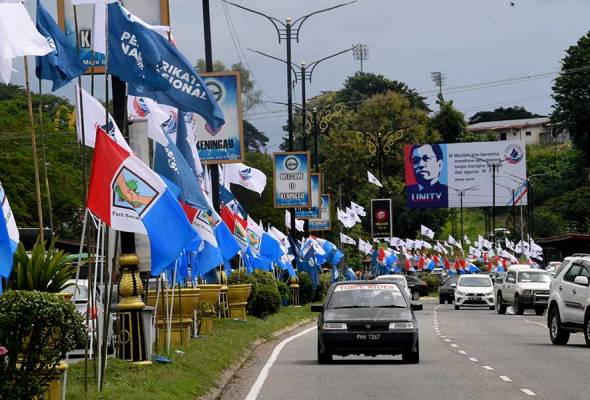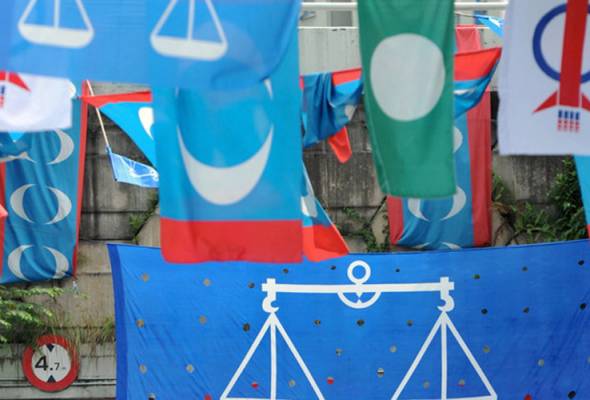
Published in Astro Awani & Daily Express, image by Astro Awani.
WHILE Sabahans were supportive of the “Sabah for Sabahans” agenda, Prime Minister Tan Sri Muhyiddin Yassin’s Abah figure had successfully shifted the perception of Sabahans on Peninsula influence, particularly among the rural voters during the recently concluded Sabah state election on Sept 26, 2020.
As Sabah is well-known as the poorest Malaysian state – 19.5 percent poverty rate in 2019 – bread-and-butter issues such as the rising cost of living and the provision of amenities and infrastructure are among the major concerns of the rural voters.
Sabah also has the highest unemployment rate in the country – 5.8 percent in 2019 and recorded one of the lowest mobile-broadband penetration than the national average of 117.4 – 80.1 per 100 inhabitants in the third quarter of 2020, according to the Malaysian Communications and Multimedia Commission (MCMC).
Therefore, the “Aku Janji” pledge by Gabungan Rakyat Sabah (GRS) resonates among rural voters, compared with the Warisan Plus camp that purely focuses on unity and nation-building.
The continuous emphasis by Muhyiddin on a close relationship between federal and state government if GRS wins the state election also successfully garnered more votes among the rural voters.
“We are here to build a nation, not a particular race or religion,” was indeed a powerful unity message by former Chief Minister of Sabah, Datuk Seri Panglima Shafie Apdal but did not manage to attract votes among rural dwellers. The unity component is relatively normal for Sabahans, as all this while, identity politics is not a factor despite Sabah being blessed with a multi-ethnic and multi-religious population with 42 ethnic groups and over 200 sub-ethnic groups with their own language, culture and beliefs.
As Warisan Plus did not address economic issues as expected over their past two years of governance, this results in a shift of support from Warisan Plus to GRS among the rural Bumiputera Muslim and Kadazandusun communities.
Although GRS consists of Malay- and Bumiputera-based party coalitions such as Perikatan Nasional or PN (Bersatu, Parti Solidariti Tanah Airku or STAR, Parti Progresif Sabah or SAPP and PAS), Barisan Nasional or BN (Umno, Parti Bersatu Rakyat Sabah or PBRS, MCA and MIC) and Parti Bersatu Sabah (PBS), their constant call on serving the rakyat regardless of political ideology or ethnic background still led GRS winning 38 out of 73 constituencies.
Out of the 38 seats won by GRS, PN comprising Bersatu and Star won the most (17 seats), while BN won 14 seats, and PBS contesting under its own banner but within the GRS coalition won seven seats.
On the other hand, Warisan Plus only managed to win 32 seats. Out of these, Warisan won 23 seats; Democratic Action Party (DAP) won 6 seats; Parti Keadilan Rakyat (PKR) won 2 seats and United Progressive Kinabalu Organisation (UPKO) won only 1 seat.
As pointed out in an Emir Research article, “Against all odds, Muhyiddin won!” by Jamari Mohtar, out of the 17 friendly fires where the parties in GRS were clashing with each other versus nil friendly fire on the part of Warisan Plus, the latter managed to win only six – a pathetic 35pc when it should be near 100pc.
In addition, the GRS coalition won 12 seats more than Warisan Plus in terms of Muslim and Bumiputera Sabah constituencies, as shown in Table 1 below:
Therefore, the Sabah state election 2020 reflects the desire of rural voters to enjoy continuous financial support from the federal government which in turn, boosting better socio-economic development in the state.
Although there is a tense relationship between Umno and Bersatu in Peninsular Malaysia during recent months, Datuk Seri Bung Moktar Radin, Sabah Umno Chief reiterated several times that Bersatu and Umno’s cooperation in Sabah would not be affected by political developments at the federal level.
This can be seen when GRS component party leaders such as current Chief Minister Datuk Seri Hajiji Noor and Bung Moktar signed a memorandum of understanding (MoU) to continue their cooperation and to reject any form of external interference attempting to threaten the coalition on Jan 9.
During his first three-month of administration, Hajiji successfully established the Sabah Economic Advisory Council (SEAC) that comprises industry players, academicians and non-governmental organisations (NGOs) to attract foreign direct investment (FDI) into the state.
During the presentation of the state Budget 2021, RM4.3 billion of budget surplus is recorded due to an expected increase in the sales tax revenue for petroleum products of RM1.25 billion which in turn was the result of an agreement between the Sabah state government and Petronas.
To further realise state economic potential, Hajiji established Sabah Maju Jaya (SMJ) Development Plan 2021-2025 on March 29. There are three thrusts developed under the SMJ Development Plan 2021-2025:
Sabah (S) refers to the three main economic sectors covering agriculture, industry and tourism;
Maju (M) refers to human capital and the well-being of the people; and
Jaya (J) refers to green infrastructure and sustainability networks.
Given the contributions of the agriculture and manufacturing sectors were only 16.1pc and 7.6pc of the Sabah’s gross domestic product (GDP) respectively as of 2019, it is relatively a strategic move for the current state government to focus on agriculture and industrial sectors.
It is also laudable the current state administration is following the federal’s footstep, advocating the green infrastructure agenda in both the Sabah’s Budget 2021 and the SMJ Development Plan.
With the help of green and modern agricultural technology, it would enhance the value of production while providing job opportunities for Sabahans to work in the renewable sectors.
By advocating and respecting people’s mandate, the current Sabah state administration could continue expediting infrastructure development projects regardless of race and religion, boosting state economic growth for the benefits of Sabahans.
Amanda Yeo is Research Analyst at Emir Research, an independent think tank focused on strategic policy recommendations based on rigorous research.

